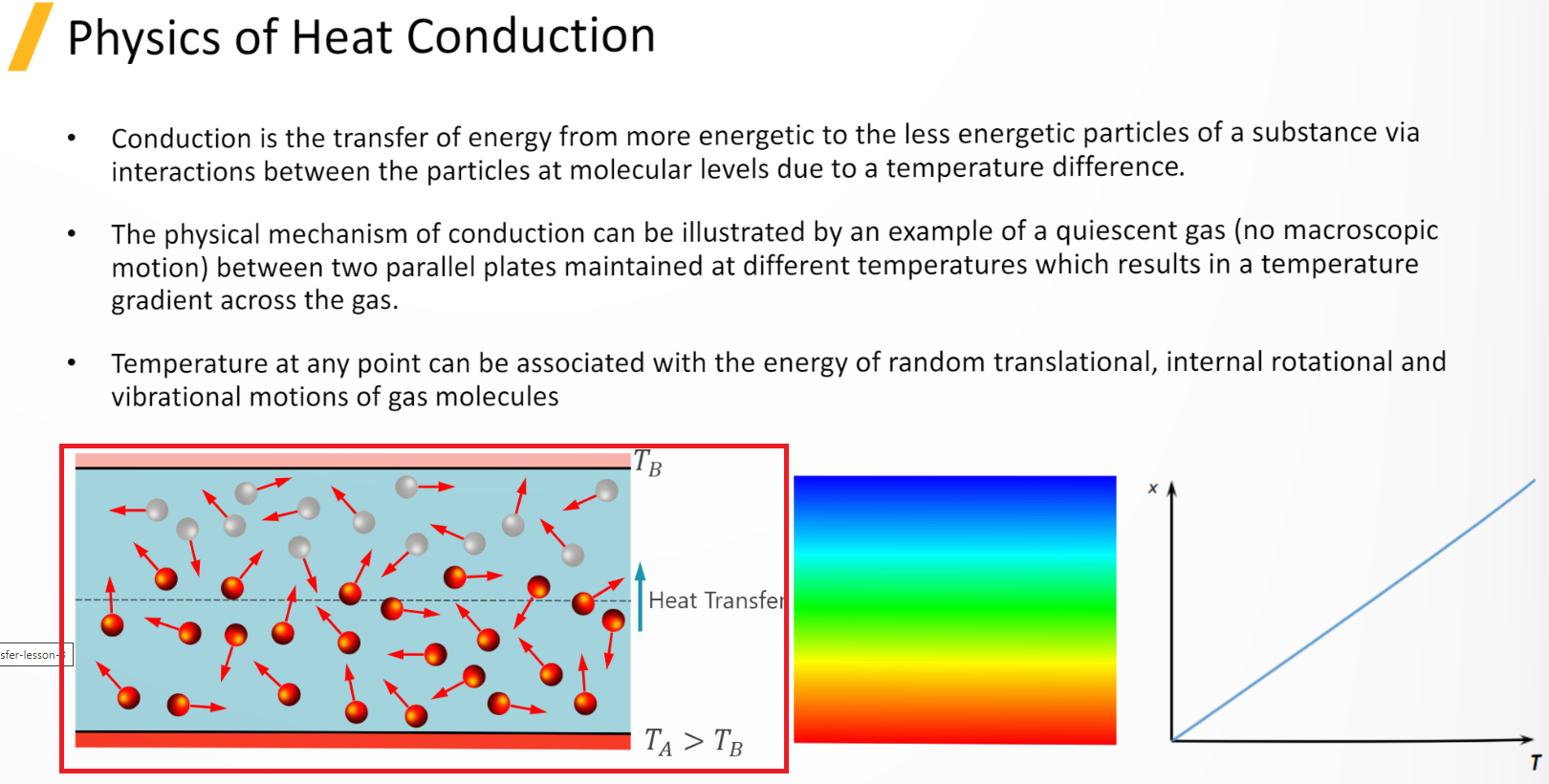TAGGED: natural-convection
-
-
October 28, 2021 at 7:56 am
Abubakar
SubscriberHi Sir,
I was doing an Intro heat transfer course, I found some issues with an example which I am expanding below,
In video number 01 of the Intro heat transfer course the instructor explaining the conduction with the below example,
October 28, 2021 at 12:58 pmKarthik Remella
AdministratorHello You are right about natural convection if the density of the gas is a function of temperature and if the gravitational vector is in the favorable direction (downward-pointing). We don't mention any of these details here and are simply assuming that there is no gravity and the density of the gas is constant. Under these conditions, conduction is the primary mode of heat transfer. I hope this helps.
Karthik
October 28, 2021 at 1:07 pmAbubakar
SubscriberHi Sir Just one follow-up question "As we have a temperature gradient the density can't be constant, right?"
October 28, 2021 at 2:09 pmKarthik Remella
AdministratorNot necessarily. Density is a property of the material. Whether it is a strong or weak function of temperature depends on the fluid or solid material. Again, this is just to simplify and help understand the concept. But, I can see your point if the material were air and we had a favorable gravity vector for causing natural convection.
Karthik
October 29, 2021 at 6:29 amAbubakar
SubscriberUnderstood sir. Thanks for helping me.
Viewing 4 reply threads- The topic ‘Issue with Intro to heat transfer course’ is closed to new replies.
Innovation SpaceTrending discussions- how to create rays of light passing across a hollow cylinder
- completed the 6 learning track courses but BADAGES are missing
- hole in a cylinder
- Geometry prep for structural simulation using Ansys discovery, Bracket tutorial
- Why cylindrical coordinate system is rotated
- Inertia Relief Analysis of Fixed Wing Drone
Top Contributors-
5159
-
1836
-
1387
-
1249
-
1021
Top Rated Tags© 2026 Copyright ANSYS, Inc. All rights reserved.
Ansys does not support the usage of unauthorized Ansys software. Please visit www.ansys.com to obtain an official distribution.
-
The Ansys Learning Forum is a public forum. You are prohibited from providing (i) information that is confidential to You, your employer, or any third party, (ii) Personal Data or individually identifiable health information, (iii) any information that is U.S. Government Classified, Controlled Unclassified Information, International Traffic in Arms Regulators (ITAR) or Export Administration Regulators (EAR) controlled or otherwise have been determined by the United States Government or by a foreign government to require protection against unauthorized disclosure for reasons of national security, or (iv) topics or information restricted by the People's Republic of China data protection and privacy laws.










